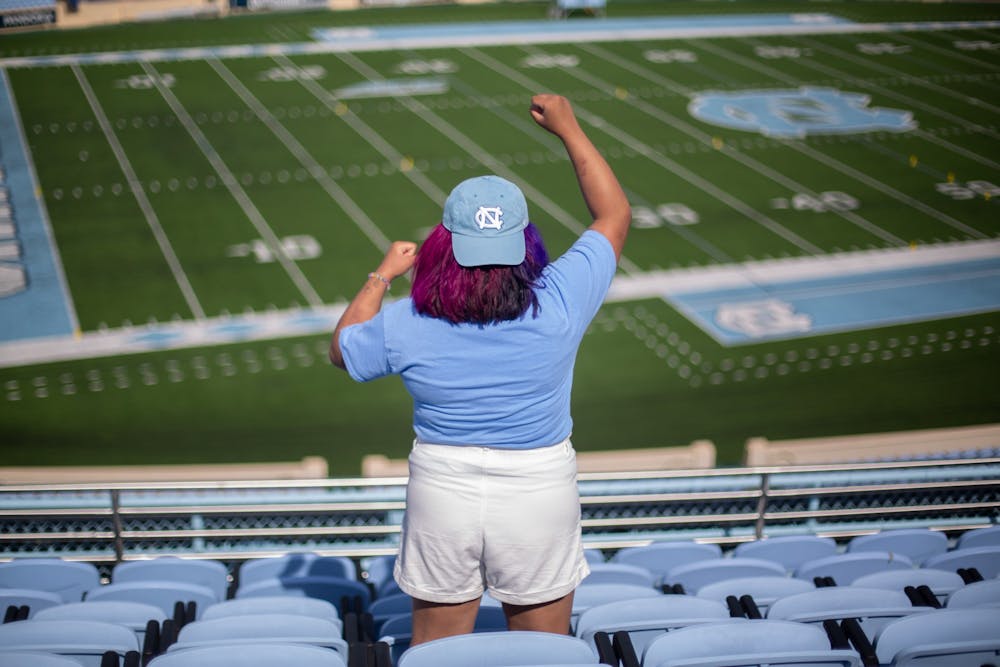As the first wave of COVID-19 struck Chapel Hill last March, the University abruptly extended spring break for an additional two weeks before transitioning to remote classes for the foreseeable future. In the weeks to come, many students would find themselves waking up in their childhood bedrooms or isolating in their apartments. No one knew when it would end, but few envisioned enduring a year like this.
On the one-year anniversary of the campus shutdown, students are coming to grasp with what happened. With over 29 million confirmed cases and 530,000 deaths in the United States, many never imagined just how bad it could be.
“Everything was super normal — I was expecting to go on spring break, and maybe a couple of beach trips at the end of the year with some seniors and have graduation,” 2020 UNC graduate Ashtyn Goddard said. “The week before spring break, someone in my class asked, ‘What happens if we don’t have class?’ And my professor answered, ‘That's not funny. That's not going to happen.’”
Sophomore Patrick Kaper-Barcelata was on an Honors Carolina trip in Washington, D.C. when he opened the University email that would alter his academic plans.
“I remembered hearing about cases in China and Italy,” Kaper-Barcelata said. “And I think it was always very distant, and I wasn't worried about it. Before spring break, I don't think I ever saw it coming until schools actually started closing.”
Kaper-Barcelata returned home to live with his parents and two younger brothers — a dramatic change from the demanding days of college. He did not expect to be at “home college” for the rest of the year.
“I thought I would be back in Chapel Hill in two weeks,” Kaper-Barcelata said. “I had to realize slowly we weren't going back. That’s been a broader theme of the pandemic, too. It has lasted longer than I anticipated and a lot of people anticipated.”
First-year Sam Robinson emphasized that for most fellow freshmen, the remote version of UNC is the only one they’ve known.
“The reason I chose Carolina was the people, and not being able to be with and interact with people in the same way just crushes our culture,” Robinson said. “I think students have done a really good job of trying to be creative and unconventional in how they make connections and meet people. But until we can be back in person together on campus, living a shared, common experience, it's just going to continue to be less than it can be.”




